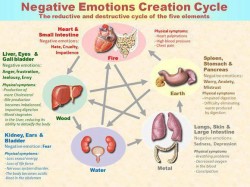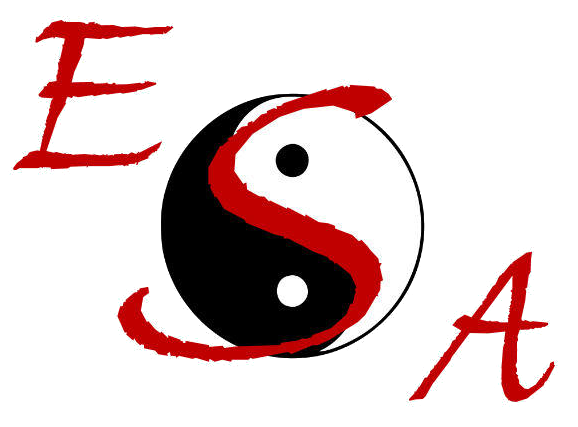This summer, physicists (tentatively) discovered the existence of the Higgs Boson. Sometimes referred to as “the God particle” (more on that terminology later) this particle lays the foundation for how matter was created during the Big Bang. Though this concept was formulated by 6 different physicists (including a fellow University of Rochester alum, Carl Hagen) over a half century ago it has taken time to develop the technology to detect these particles. This discovery provides the foundation upon which our understanding of the universe is based.
So what is the Higgs Boson all about? I’m not a physicist or mathematician by any stretch of the imagination, the only numbers I use on a daily basis are for accounting or for the numbering system used for naming acupuncture points but I will take a stab at explaining the concept according to my understanding of it. It has generally been accepted that the universe started at the so called Big Bang where an infinitely small point contained all of the matter of the universe which then rapidly expanded and became the universe as we know it. One of the issues physics has had to deal with is explaining how that mass was created. Enter the Higgs boson…
In July of 2012 researchers at the Large Hadron Collider at CERN in Switzerland observed a boson that is consistent with the previously hypothetical Higgs Boson, though it has not been conclusively identified. If this particle does exist then it would prove the existence of the Higgs field. The Higgs field permeates the whole universe and is the vacuum from which all else came. The Higgs boson is how energy in the Higgs field “condenses” into mass creating particles and therefore the matter that we are more familiar with. This particle started being referred to in the media as “The God Particle” after a title of a 1993 book by Leon Lederman. Many physicists are not fans of this name as there is nothing religious or mystical about the particle.
What does all of this fancy physics stuff mean to an ancient healing tradition like Chinese medicine? First of all it explains the universe, in modern terms, in much the same way it is described in ancient Chinese thought and it also gives us some insight into the “energy” (or “qi”) that is a central concept of Chinese medicine.
Every culture has their own creation myths. In the Judeo-Christian traditions it is the story of Genesis, God creates the world in six days, takes a day off on the seventh. In Taoism, a philosophy from ancient China which greatly influenced the development of acupuncture, the universe does not have a Creator in the same sense. The origin story of the universe comes from the Taoist text the Tao Te Jing (Dao De Ching) written by Lao Tzu around 300 BC. In it he says, (and I paraphrase), “From the one comes the two, from the two the three, and from the three the ten thousand myriad things”. I know, that’s kind of cryptic, so lets break that down.
The one refers to the Void (the Tao, represented by the Wuji symbol which is an empty circle). This is an undifferentiated whole. From this comes the two, or Yin and Yang (symbolized by the Taiji or Great Ultimate – the black and white symbol found in my logo). From the two comes the Three – Yin and Yang interact to create Qi or energy (it would probably be better understood as from the two comes the third). From the three comes the ten thousand myriad things, or in other words everything in the universe. Are you still with me?
Admittedly the Taoist explanation is more poetic than scientific, but lets look a little closer. The universe starts off as an undifferentiated “Void” from which everything else comes from. Sounds a lot like the Higgs field. From this we get Yin and Yang which would equate to the charge of particles. This interplay of polarity creates Qi. While commonly translated as energy we could also consider this to be the various forces (gravity and other forces) that holds particles together to create matter (the ten thousand things). So in just a couple of sentences the ancient Taoists may have been describing sophisticated concepts of particle physics.
Now the title of this article is about the Higgs boson validating acupuncture so I think I need to go another step or two further. Chinese medicine and acupuncture rely heavily on the concepts of Taoism so if we can comfortably say that the Taoist cosmology is similar to our Standard Model of physics that is a big step in showing that what we talk about in acupuncture is describing the same things we talk about in physics, and by extension in biomedicine (though some would agree biomedicine is a bit behind modern physics in its understanding of the universe and the human body). The problem is we still have a lot to learn about our bodies before we can translate the ancient terminology into the modern. Many acupuncture skeptics point out that we haven’t proven meridians or qi and therefore the whole system must be false. I contend that we didn’t understand gravity for a long time (and certainly not in the same way we have understood it in the past 100 years) but humans still knew that if you drop something it will fall to the ground. Not knowing about gravity did not make its effects false. In the same way we still have work to do to fully understand the mechanisms of acupuncture but we can see the effects and know that something is indeed going on. To take one more stab at equating the two seemingly different models I will pass along a quote about qi (the “energy” that we manipulate in acupuncture to cause healing). I don’t know the source, so if anyone does please let me know. It goes something like this – “Qi is energy on the verge of becoming substance, and substance on the verge of becoming energy”. This concept is strikingly similar to the idea of the Higgs boson as the intermediary between energy and substance. As we deepen our understanding of the Higgs field and Higgs boson I think we will come to a better understanding of the mystical sounding concept of qi and a better understanding of the human body. Of course, if you ask me acupuncturists already have that understanding, we just need to make ancient terminology work with modern terminology, but to do that the modern terminology still needs to be developed.
Regardless of how we tackle the conceptualization of acupuncture and Chinese medicine with further scientific advancement I hope I have sufficiently shown you that the ideas of Chinese medicine really are not mystical and are in fact very well grounded in a deep understanding of our bodies (and universe) developed through thousands of years of observation. It is important to not get hung up on the words, as they are merely a tool for our understanding. Just like Shakespeare points out “What is in a name? That which we call a rose by any other name would still smell as sweet”. No matter how weird Chinese medicine may sound at times we are, in fact, describing the same exact body including it’s many functions and dysfunctions, as modern medicine.
Note – If you liked this article be sure to check out “The Tao of Physics” by Fritjof Capra. He goes into much more depth about modern physics and looks into other eastern traditions. I checked the index of his book after writing this article and it does not mention Higgs bosons or Higgs field. It has been around 10 years since I last read the book, before I knew anything about Taoism, so any similarities in content are unintentional.




